Ketusan Music Studio: Reviving Truku culture through music and lifestyle
By Candice Leow
Ketusan, in the indigenous Truku language, means survival and revival of life. It is also the original Truku name of Jiamin Village of Xiulin Township in Hualien County, located north of the spectacular Taroko Gorge. Visitors to the Ketusan Music Studio can take part in an immersive experience of Truku music and culture. Managed by Truku hunter and musician, Pitayru Ukah, and his wife Hsueh Kuo-fang, a producer trained in classical music, this space offers a guided journey of cultural and historical documentation and revitalization.
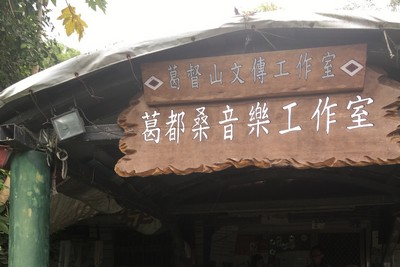
Beginnings
Having grown up in the natural environment of the mountains of Hualien, Pitayru became a skilled hunter and fluent in the Truku language from an early age, allowing him to incorporate Truku culture into his lifestyle and to communicate with the elders. He lived for a time in Taipei and won a popular singing competition. But, he longed to return to his village. There, he began to preserve the fading memories of traditional music and culture together with his wife, establishing this workshop in 1996. Today, this couple shares heartening memories of their interactions with the elders, as they recounted and sang songs that were once thought to have been lost.
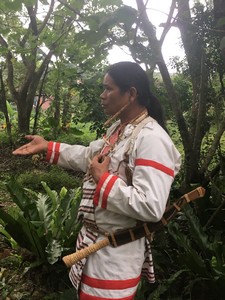
Rediscovering Truku culture through music
Pitayru’s journey of cultural preservation and revitalization is one of sharing, exchange and music making. Having performed at national events and during international cultural exchanges, Pitayru became interested in collecting indigenous musical instruments from other nations. Most importantly, visitors catch a glimpse of Truku culture rooted in the life and lifestyle of this hunter and musician.
In addition to archery, customizable trekking and hunting experiences, visitors gain a sense of the oral histories, stories and culture encapsulated in the songs he performs. In addition to the sounds of the mouth harp as a means of communicating feelings between people and with nature, weaving was a must-have skill for Truku women in the past, a rite of passage into adulthood, as was the skill of hunting for men.
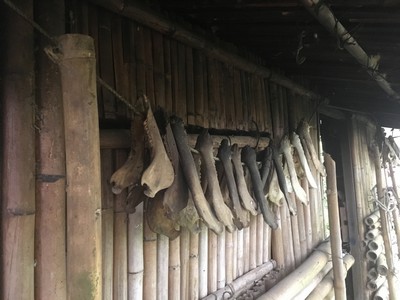
Truku facial tattoos
During their occupation of Taiwan (1895-1945), the Japanese banned the practice of facial tattooing. Pitayru was the first in Taiwan to revive Truku facial tattooing in 2007. Describing these tattoos as a “pathway” of connection to his ancestors, his facial tattoo is part of his identity as a Truku warrior. Traditionally, the facial tattoo was a symbol of entry into adulthood to be earned and a form of recognition for a soul after death, where one may rejoin the ancestors after crossing the Rainbow Bridge. To do so, one has to obey the Gaya, an oral record of customs and rules, which govern behavior, to be upheld by individuals, families and villages.
Reviving Truku culture through music and lifestyle
At the Ketusan Music Studio, the couple passes down and shares Truku music and culture with young musicians who are interested in traditional Truku dance and music. They also perform at events and showcases. The musical instruments, such as flutes and mouth harps, are handmade by Pitayru using bamboo obtained from the hills, while his wife also plays the instruments and teaches.
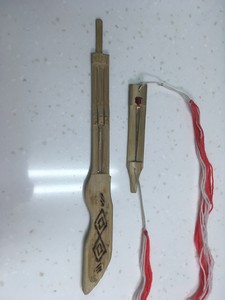
Pitayru also makes and plays Truku wooden xylophones, which he ascertains to have come to the Truku culture at a later stage, after Truku communities had been relocated to the lower elevation areas by the Japanese colonizers to better control their movements.
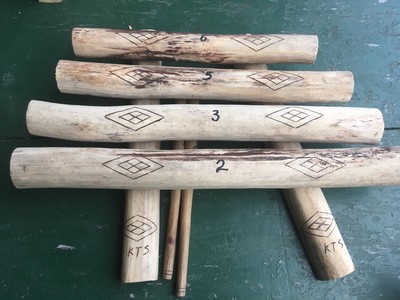
While the couple records and arranges songs inspired by traditional tunes, the Ketusan cultural troupe presents stories of the Truku tribe in the form of a short musical, retelling the traditional practices of hunting and weaving, as well as courtship customs, as recounted by tribal elders.
Other than for making musical instruments, bamboo tubes are used by the Truku people for cooking rice, which visitors can experience for themselves. Advance reservation is necessary for the preparation of materials.
Visitors can also observe hunters’ traps and snares, set by Pitayru, as he shares about traditional Truku clothing and accessories made from animal teeth. Due to Pitayru’s deep roots in the Truku culture and meticulous research, this one-stop cultural space offers a unique, in-depth experience.
Location and details for visitors
The Ketusan Music Studio is located at No. 4-3 Jiamin Village, Xiulin Township, Hualien County. To arrange a visit, contact this studio through Facebook at http://www.facebook.com/pg/Pitayru/.